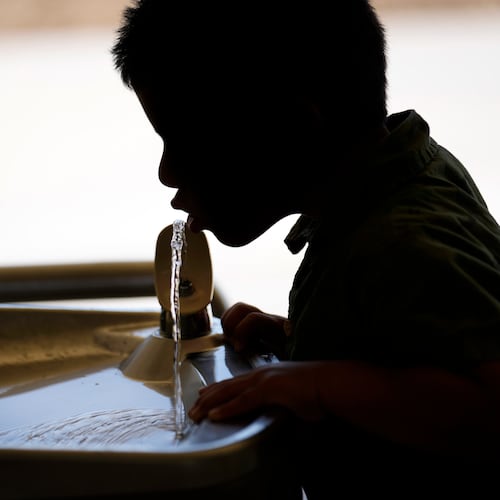A victory for four Cobb County families in an ongoing lawsuit over COVID-19 policies in schools could mean more classroom support for students with disabilities across Georgia, said lawyers for the students.
In fall 2021, four students with medical conditions like acute myeloid leukemia and severe asthma and their parents sued the Cobb school district, school board members and Superintendent Chris Ragsdale for violating the students’ rights. The suit alleged the students were unable to attend in-person schooling and would not receive an equitable education remotely if the district didn’t implement recommendations from the Centers for Disease Control and Prevention, including a mask mandate.
Cobb stopped requiring masks in fall of 2021. A federal judge in the Northern District of Georgia denied the families’ request to impose stricter COVID-19 regulations in the school district.
But after a yearlong appeal process, the U.S. Court of Appeals in the 11th Circuit recently reversed that decision.
“It’s a major victory for students with disabilities,” said Mike Tafelski, a senior supervising attorney for the Southern Poverty Law Center, which represented the students. The students are also represented by the Goodmark Law Firm and the Law Office of Allison B. Vrolijk.
The Cobb County School District did not return a request for comment, but supported its mask-optional policy in a statement when the court originally ruled in its favor.
“COVID-19 is complicated and personal health decisions, including mask wearing, are best made by people — not school districts,” a district spokeswoman said at the time.
The opinion written by Judge Charles Wilson requires the court to consider whether virtual learning is an appropriate replacement for in-person schooling, and whether the students will face adverse outcomes as a result.
“Relegating students with disabilities to remote, separate learning programs because they’re disabled does not comply with the law,” said Eugene Choi, an SPLC senior staff attorney.
Students with disabilities are entitled to reasonable accommodations at school under federal law. The appeals court ruling suggests that the court must consider whether COVID mitigation strategies should be considered reasonable accommodations.
The appeals court ruling will affect more than just the Cobb County School District, Tafelski and Choi said. The decision will direct both courts and schools in Georgia, Florida and Alabama, which are part of the 11th Circuit — meaning schools will have to consider similar accommodation requests, they said.
And, they said, it’s a decision that transcends COVID. Tafelski drew a comparison to accommodations for students who use wheelchairs: School districts cannot refuse to build a ramp, for example, and send them to a remote learning environment instead.
The case will go back to the district court for reconsideration.
About the Author
Keep Reading
The Latest
Featured

